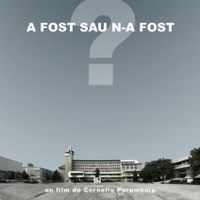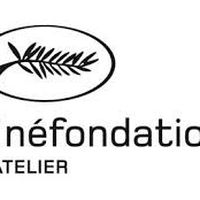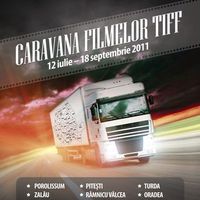The “Little Decree - Generation” Of Filmmakers
“It is Cannable, isn’t?” Among the new words that are enriching the vocabulary of the Cannes International Film Festival every year, a “Cannable movie” is a recent term for a film that presents good chance of being screened in one of the festival sections. This year, three Romanian films have succeeded through their Cannable-test, and found their ways to the screens and stages in different sections of the 60th edition of the festival. The Three projects have at least one point in common; these are the works of the new generation of Romanian filmmaker that contributes to the Renaissance of a strong cinematography in the Carpathian.
First success for Romanian films at the 60th edition of Cannes, Cristian Nemescu movie was bestowed with the “Un Certain regard” prize. The “Un Certain Regard” section screens some twenty feature films hailing from cinematic cultures near and far – by young filmmakers and seasoned masters alike. The film by Cristian Nemescu “CALIFORNIA DREAMIN’” would have revealed one of Romania most promising talent if its young author would not have passed-away in a tragic car accident last summer at the age of 27, when the movie was at its postproduction stage.
Nemescu story is about two worlds that are meeting for the first time; the Western world represented by the US army moving through Romania, and the East European World represented by the inhabitants of a Romanian village bordering Serbia at war.
Cristian Nemescu succeeded to gain the international attention already at the previous edition of Cannes Festival in the “Critics’ Week” for his mid-length, bittersweet story “MARILENA DE LA P7.” Andrei, 13 years old is madly in love with a prostitute known as Marilena. One day he steals his father's bus to impress her. Nemescu film depicts the poorest population in the Romanian society with love and tenderness.
Political and sociological elements are also the background of two other Romanian productions made by Christian Mungiu and Cãtãlin Mitulescu, two filmmakers from the so-called “Little Decree” generation.
“Little decree” was the nickname given ironically to Romanian children born after Dictator Ceausescu decree on the ban of any contraception mean and abortion, at the end of the sixties. Christian and Catalin are from this generation that was also “at the forefront of the December 1989 Revolution and subsequently of the changes that marked the country’s evolution throughout its first crucial years of democratic and Plan-to-Market transition.” noted the Romanian FOCAL POINT.
Christian Mungiu feature “4 MONTHS, 3 WEEKS, 2 DAYS” was the second success for Romania in terms of festival award-chronology, but it was the most awaited award – The Palme D’Or – a World-Triumph for the Romanian cinematography!
The film pictures with details the ordinary life in the totalitarian darkness of Romanian people at the end of the Communist era. “Above all it is an abortion story from a period of time when such an act was an act of protest against a regime which sought to impose discipline by banning abortion” Mungiu said.
On the production of the movie, which was made with little funding from the Romanian CNC and support from the Hubert Bals fund, Mungiu added: “One year ago we didn’t have any idea about this project and some six months ago, we didn’t have any money to make it and finally, we were just hoping to be in Cannes in any kind of competition.” And on receiving the award, Mungiu continued “The kind of attention that we got here all along the Festival, this story that we believe in so much, is going to reach lots of people now. I also hope that this award that I’m getting now is going to be of good use for small filmmakers in small countries everywhere.”
Two other prizes have also been attributed to Mungiu’s film; the International Critics Prize awarded by the FIPRESCI (International Federation of Film Critics) and The French National Education Administration Prize, which singles-out films for their usefulness as learning resources. The jurors are teachers and other members of the community of educators, as well as people from the film world. The winning film will be issued as a teaching DVD which will facilitate approach to it and elicit analysis and debate in the classroom.
Mungiu participation in the competition section was a double come-back for that it marked the return of the filmmaker who came to Cannes in 2002 with “OCCIDENT” – a film that made an unprecedented hit at the Romanian box office In a country, which has one of the lowest cinema attendance in Europe. The success was not bitten yet even by Hollywood productions. For Romania also it was a come back in the feature film competition where no Romanian movies were seen for eleven years.
The second “Little decree” present at this edition of the Festival was born in 1972, four years after Cristian Mungiu. Catalin Mitulescu, came back to La Croisette after obtaining the Palme d'Or in 2004 with his third short film “TRAFFIC.”
He also represents this new generation of Romanian filmmaker with a successful young career. He was selected for the Cinéfondation of the Cannes Film Festival for two of his projects: "Bucharest-Wien 8:15" and "17 Minutes Late". His last film "THE WAY I SPENT THE END OF THE WORLD” written together with Andreea Valean was selected in 2006 for Un Certain Regard and received the best Actress Award.
This year, the Cannes International Film Festival selected his project “A HEART SHAPED BALLOON” in a list of fourteen international works at the ATELIER. The Atelier is an initiative of the Cannes International Film Festival organized by Cinefondation since in 2005. It selects about fifteen feature length projects from around the world. The selection is made according to the quality of the project and that of their previous films, as well as on the state of progress of their finance plan. The programme shall enable the film directors to gain access to international financing and speed up the production process.
Opportunities to participate, to compete and to win are enlarging the vocabulary of the Cannes Film Festival once more! The Romanian films presented at the 60th edition proved that they were not just “Cannables”, they were also “Palmable”!
RELATED:
4 Months, 3 Weeks And 2 Days Cristian Mungiu
The Official website-blog
An interview with former Berlinale Talent Campus by Martin Blaney
Rules and Regulations for the Atelier
Le livre des projets des Ateliers de Cannes (French and English)
The Livre des projets is available to any producers wishing to find out about the 15 of the Atelier 2007.
“TRANSYLVANIA in Vietnam”
Among the Cannable of Cannes 2006 “TRANSYLVANIA” by Tony Gatlif was selected out of competition to close the festival in 2006. The movie was shown later as part of a travelling-programme called “The best of the Cannes Festival Panorama” – a programme which offered a rare opportunity in Asia to discover Romania as a shooting location with rich traditions.
Tony Gatlif, a French filmmaker with Gypsy -Algerian origin, was one of the first European filmmaker to explore the unique potential of Romania as a location in feature films. His earlier productions on Gypsy and nomad-life already brought him to the heart of Romania in 1998, with “GADJO DILO”, and to the Indian sources of the Romanian culture with "LATCHO DROM" where the filmmaker, reviews the variations of the gypsy music starting in the North-West of India, passing by Egypt, Turkey, then, Romania, Hungary, Slovakia and France. "LATCHO DROM" (meaning “good road” in Rom language), is a road-movie, which goes eventually also through thousand years of history marked by the hatred and the rejection of these European nomad of Asian origins.
Tony Gatlif presented his feature film TRANSYLVANIA to the Vietnamese audience last October in an event organized by the French General Consul General in HCM City and France's Gan Cinematography Promotion Foundation. The event is now repeated every year to give the Vietnamese cinema goers the chance of seeing best francophone movies shown at the Cannes Festival.





